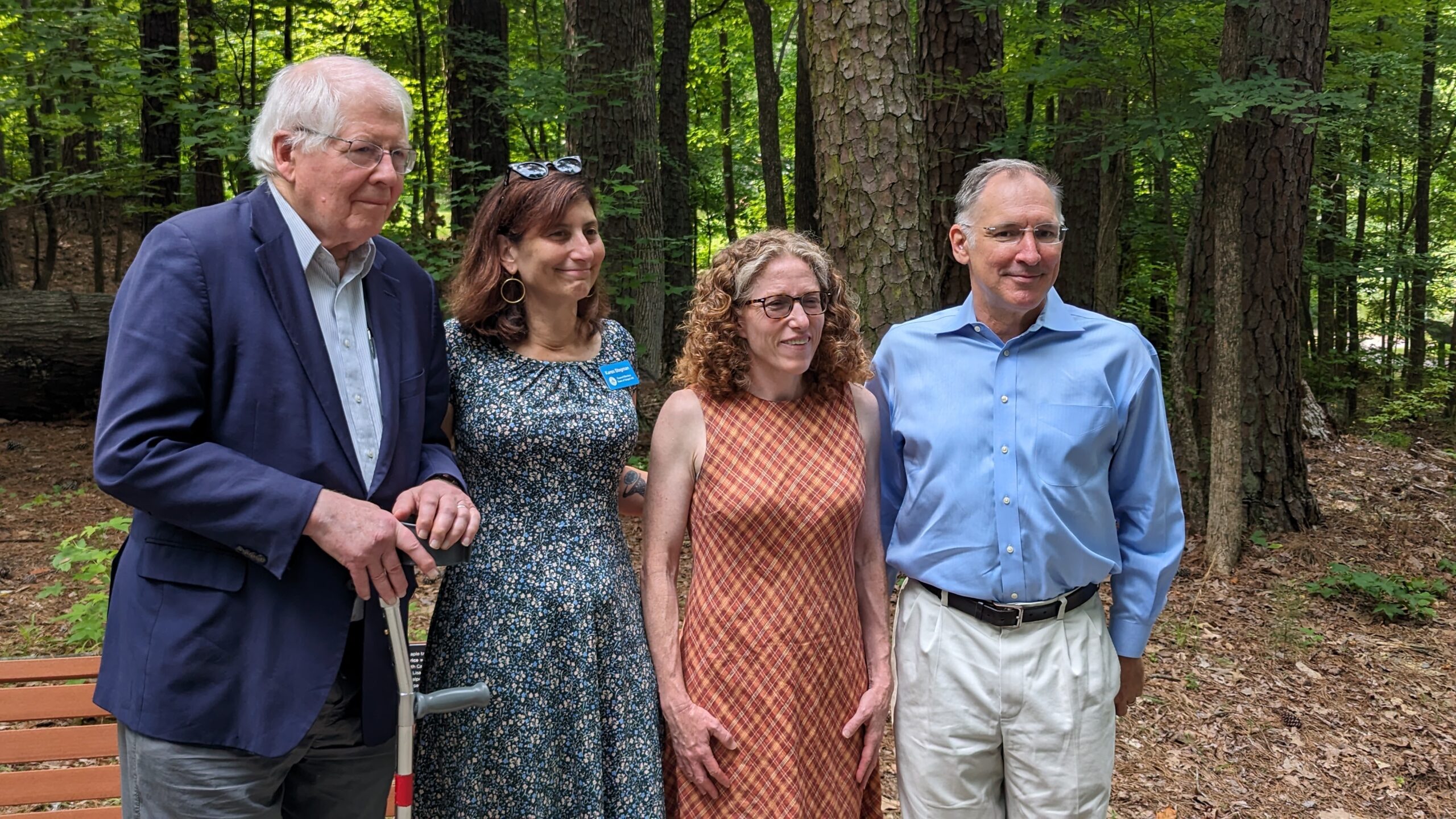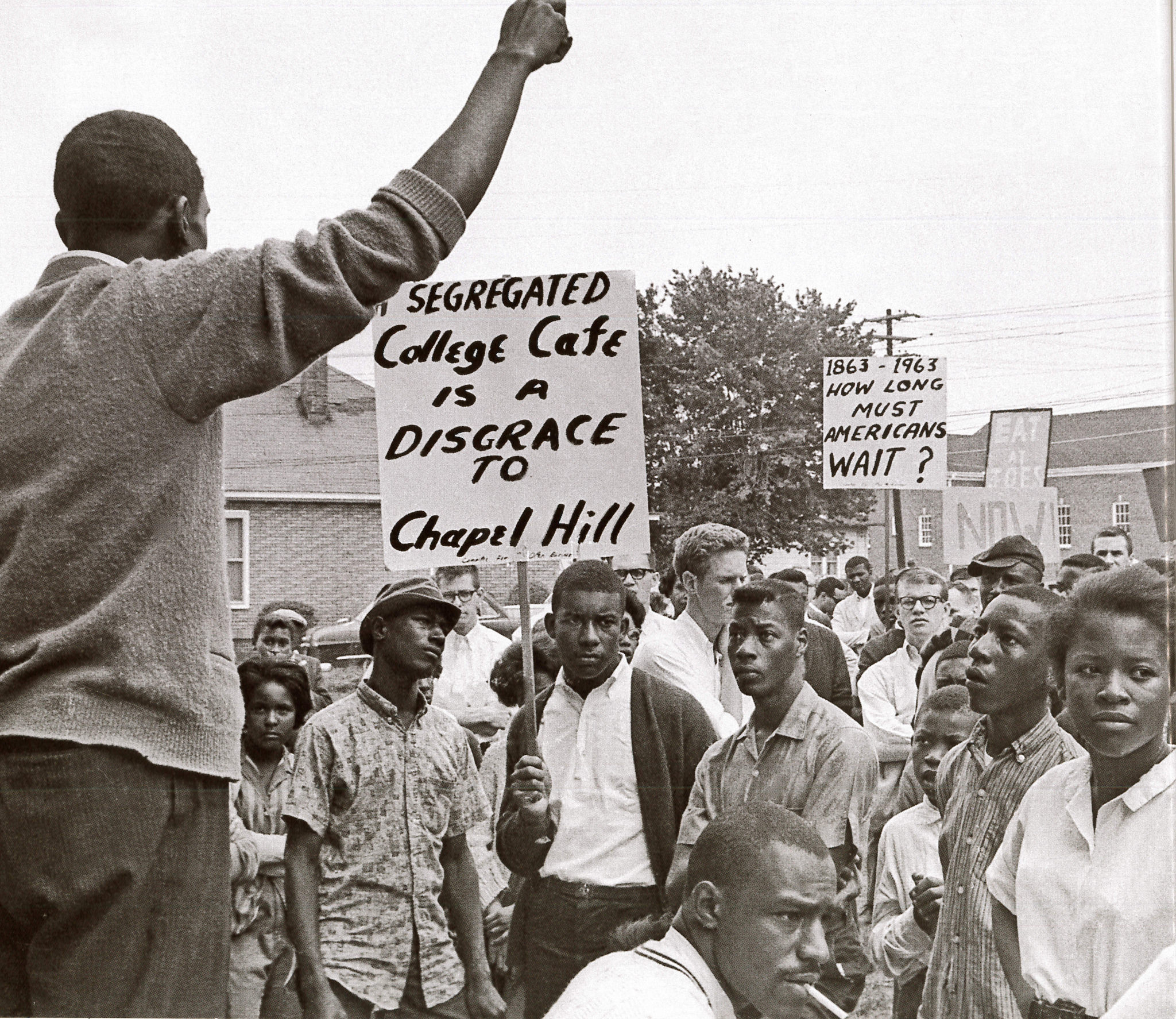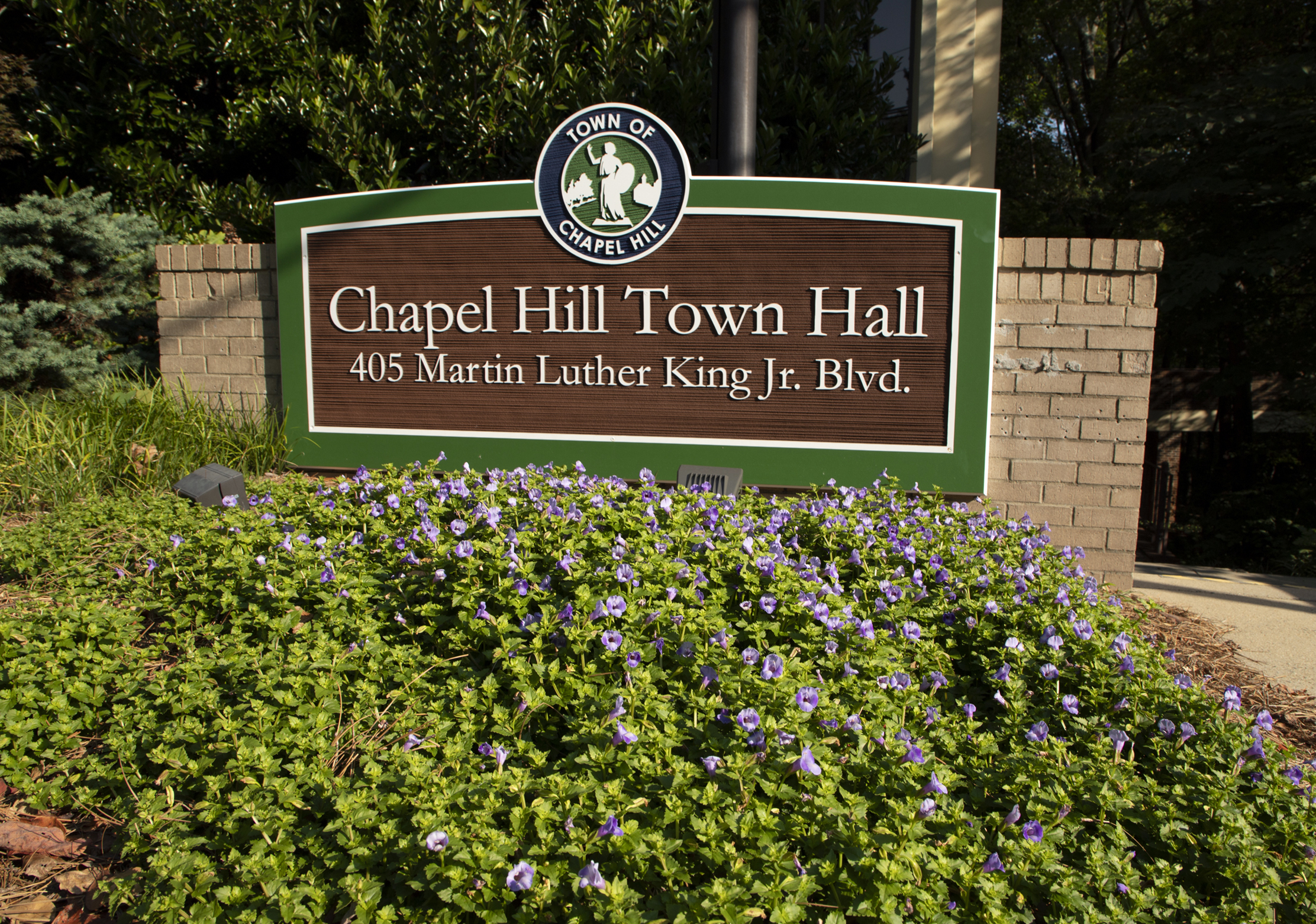Monday at 7:00 p.m., Deep Dish Theater Company is holding a book discussion of Alison Bechdel’s graphic-novel memoir “Fun Home,” in conjunction with its ongoing production of “A Queer Kiss.” The discussion (led by Evelyn Daniel) will take place at the Chapel Hill Public Library. Seriously, you should go.
Unfortunately—to my disappointment—I have to be at a different event at the exact same time, so I can’t make it. But consider this piece my contribution...
“What’s your favorite book?”
For me, that’s always been an easy one: Catch-22. After that, in no particular order, Cat’s Cradle by Kurt Vonnegut, Ragtime by E.L. Doctorow, and Invisible Man by Ralph Ellison (now back in its rightful place on the shelves in Randolph County). Those four have been my pantheon, for at least the last ten years.
But nowadays I’m not so sure.
Let me tell you about Fun Home.
Fun Home is an autobiographical memoir—written in graphic-novel form—by Alison Bechdel, otherwise best known as the author of the alternative comic strip “Dykes to Watch Out For.” (She’s also the one who popularized the “Bechdel Test” for movies: a movie passes if it includes at least one scene in which two or more women talk to each other about something other than men. The fact that so few movies do pass that test is a pretty damning indictment of pop culture.)
But Fun Home is her masterpiece. Heck, it might be humanity’s masterpiece.
Written out of chronological order, spanning years and revisiting moments again and again—kinda like Catch-22, come to think of it—Fun Home is ostensibly a coming-of-age memoir about Bechdel’s childhood in Pennsylvania, growing up in the 1960s and 70s in an intellectual-artistic family dominated by the frosty relationship between her mother (a brilliant actress/musician) and her father (an English teacher/undertaker with a mad genius for design and a manic obsession with beauty).
It’s a fascinating bunch in itself, made quirkier by Dad’s work with the family funeral home (the “fun home”)—a closeness with death that contributes to the family’s morbidly icy demeanor.
But that’s just the setup. Here’s the twist: after years of subconscious questioning, Alison comes out as gay to her parents—only to have her father come out right back.
Then a few weeks later he’s dead. Hit by a truck. (A Sunbeam bread truck, as it happens.)
Was it an accident? Was it suicide? Bechdel assumes it was suicide. But she’s also self-aware enough to know she could be wrong. To call it suicide is to insist that there was meaning and purpose in her father’s death—which is oddly comforting, because the only alternative is to admit that the death was meaningless and absurd. But what’s comforting isn’t always what’s true. (Bechdel concedes the timing may have just been a coincidence, that her father’s death may have been unrelated to her coming out—even if it was suicide—but she’s “reluctant to let go of that last, tenuous bond.”)
And so she’s left to put together the jumbled pieces of a puzzle with a missing center, to make sense of a man who’s always just, just out of reach. Dad—Bruce Bechdel—was an enigma, an “old artificer” whose obsession with making the family house appear perfect mirrored his drive to make himself appear perfect. But the artifice is phony, the underlying reality never revealed. (Even when the truth does come out, it’s uncertain. We get competing stories—both stammering and elliptical—of Bruce’s first sexual experience: “He…he was molested by a farmhand when he was young,” says Alison’s mother Helen; “It was…nice,” says Bruce much later. And this is all we ever get to hear. Where is the truth?)
Where is the truth? Bechdel’s memoir is a work of postmodern existentialist genius—a narrative with no faith in objectivity, attempting to make sense of nonsense, telling the true story of a man whose life was a fiction. (Indeed Bechdel says she understands her parents best as literary figures—so Fun Home is full of literary references, from Joyce to Proust to Shakespeare.)
(I’ve personally read two books already—Joyce’s Portrait of the Artist and Randy Shilts’ And The Band Played On—based solely on Bechdel’s dropping them here. I’m working my way up to Proust.)
Truth is something we claim to want—“the truth will set you free,” we always say—but truth can also be slippery (as Alison first learns when she starts writing a diary), and truth can also be inconvenient. “I am not a hero,” Bruce writes to Alison, and he’s right: he lived a lie, lashed out physically, slept with his students (or tried to), and cheated on his wife—with her knowledge, apparently, so her truth isn’t particularly convenient either. And hanging over everything is the specter of his death, the inconvenient-est truth of all, coloring every one of Alison’s childhood memories. (Sunbeam Bread is everywhere.)
But the truth does set you free, ugly as it is. “The end of his lie coincided with the beginning of my truth,” Bechdel writes—and as much as Fun Home pretends to be about Bruce, it’s really about Alison all along. It’s her journey we’re seeing: her coming of age, her coming out, her coming to terms with herself and emerging, as an adult, as a lesbian, and as an artist. For better or worse, Alison is her father’s daughter: from Bruce she inherits her artistic skill, her intellect, her sexuality, and perhaps most importantly her gift for restoration—taking something that’s not entirely pretty (an old house in Bruce’s case, a family history in Alison’s) and transforming it into something transcendent and beautiful and meaningful. (Today I learned that Alison’s mother Helen passed away earlier this year; I almost cried when I found out.)
We all know about dealing with inconvenient truths. Deep Dish Theater is hosting its discussion of Fun Home—you should go!—in conjunction with its current production of A Queer Kiss, another work about coming to terms with harsh realities. Both stories begin with men and boys whose fear keeps them in the closet, but it’s the characters around them—and the different ways they choose to confront the hard truths with which they’re faced—that really drive things forward. (Queer Kiss revolves around a shared kiss between two boys and the play puts the boys front and center, but I see the main characters as the parents—one overly supportive, one entirely homophobic, and two completely at a loss for what to do next.)
A Queer Kiss and Fun Home are not the same, of course. Queer Kiss is expressly concerned with making a statement about homophobia in society; Fun Home (surprisingly) doesn’t really go there. Though Alison uses hints and background details to suggest a hetero-centric society that makes life difficult for “inverts,” the Bechdels themselves run in some pretty tolerant circles. (Alison’s mother isn’t terribly comfortable with homosexuality, but we understand where she’s coming from.) Queer Kiss portrays its characters as victims of societal homophobia, but Fun Home’s truth is much more nuanced: on the couple occasions when Alison finds herself leaning toward that interpretation, she immediately pushes away. It’s part of her story, but not the whole.
But at the heart of both is that confrontation with truth—slippery, evasive, difficult, damning, and inescapable. We all have to do it. Today I went back in my Facebook page and found something I remembered posting last February: “I might as well get these three harsh truths off my chest: I kinda wish ______ would just _______, I think I may be _______ with ______, and I might have ______ed my _______.” (Like Bechdel, I’m self-aware enough to admit the inconvenient truths about myself; unlike Bechdel, I’m not brave enough to broadcast them to the world. Though I’ll Vaguebook them from time to time.) We all have sentences like this. The question is: do we deny the inconvenient truths? Do we ignore them, live our lives as if they didn’t exist? Or do we confront them, face them head-on and engage them as equals?
At the center of A Queer Kiss (now playing at Deep Dish!) are characters who try to ignore the inconvenient truths; at the center of Fun Home is a character—Alison herself—who faces them. As a result, the two works ironically trade places: Queer Kiss gives you full access to the truth but ends with uncertainty; Fun Home’s truth is shrouded in mystery and speculation, but it ends with absolute closure. I must have read Fun Home dozens of times by now, and the last page still, still makes me cry.
But I don’t want to spoil nothing. Read it for yourself, if you haven’t already. You’ll thank me later.
Seriously, go ahead. I’ll wait.











